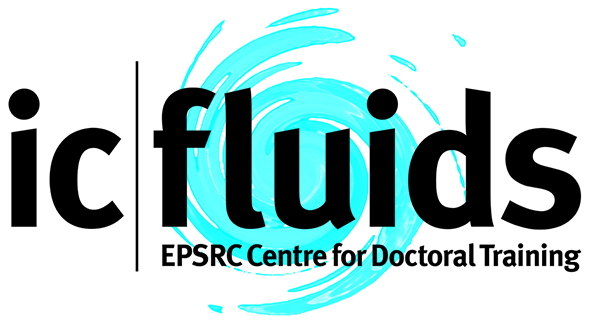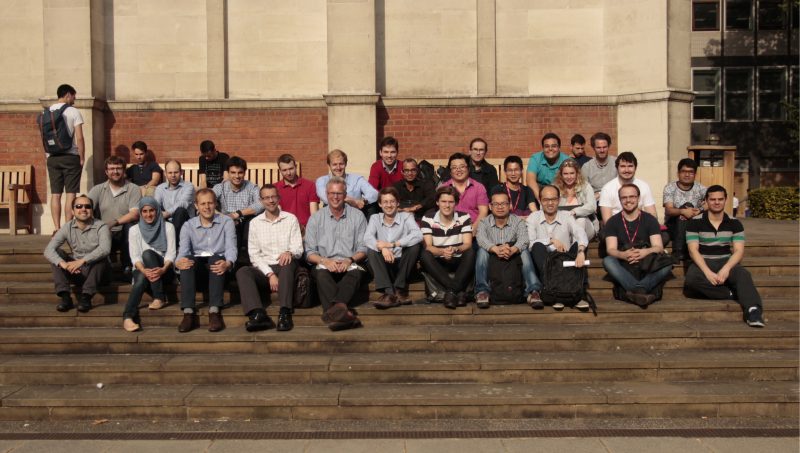June 7th – 8th, 2016, Skempton Building 207, Imperial College London, UK
In association with the EPSRC Centre for Doctoral Training in Fluid Dynamics across Scales, and PRISM


Objective
The purpose of this meeting is to bring together the Nektar++ developers and design time with users of any experience level within the broader community. This two day workshop will feature talks providing an overview of Nektar++, discussions on the current design roadmap, tutorials on how to use some of the more recently added and/or requested features within Nektar++ (such as high-order mesh generation and parallelism), and presentations by those adapting and using Nektar++ for pushing the boundaries of their own scientific and engineering disciplines.
Programme
June 7th (Skempton Building, Room 207)
June 8th (Skempton Building, Room 207)
| 09:00 – 10:30 | Session 3: Application updates (3 x 25 min talks) |
| 09:00 | Julien Hoessler, Attempts at Implicit LES simulations around a F1 car |
| 09:30 | Kilian Lackhove, Cosimulations with Nektar++ and their Application to Combustion Noise |
| 10:00 | Andreas Falkenstrøm Mieritz, “Large-scale fully nonlinear water wave modelling in Nektar++” |
| 10:30 – 11:00 | Break |
| 11:00 – 12:30 | Session 4: New and upcoming features (3 x 25 min talks) |
| 11:00 | Joaquim Peiro, “R & P Adaption” [Presentation] |
| 11:30 | Douglas Serson, “Using coordinate transformations in Nektar++ incompressible flow solver” [Presentation] |
| 12:00 | David Moxey, “NekMesh: an unstructured high-order mesh generator for Nektar++” [Presentation] |
| 12:30 | Lunch |
Satellite Sessions (June 8-9th, Skempton Building, Room 062)
In addition to the main workshop on Tuesday and Wednesday, we plan to hold a number of satellite sessions in the period immediately after the workshop on June 8th – 9th.
June 8th
| 13:30 | Compiling Nektar++ triage (Chris Cantwell, David Moxey, Spencer Sherwin) |
| 14:00 | Basic Nektar++ usage using the ADRSolver (David Moxey) |
| 16:00 | Nektar++ in the cloud and graphical configuration using Nekkloud (Jeremy Cohen) |
June 9th
| 09:00 | Fundamentals of the spectral/hp element method (Spencer Sherwin) |
| 10:30 | Introduction to Flow Stability Analysis using Nektar++ (Chris Cantwell) |
| 12:30 | Lunch |
| 14:00 | Open discussion, design planning, etc |
Location
The workshop will be held in the Skempton Building, on the South Kensington Campus of Imperial College London in central London.
Getting to campus
Directions to campus are available from the Imperial College website. The nearest London Underground stations are South Kensington and Gloucester Road, which lie on the Piccadilly, Circle and District lines.
Getting to Skempton
The Skempton building is marked as building 28 on the South Kensington campus map. Skempton is located on Imperial College Road, which can be accessed from Exhibition Road. From South Kensington station, take the underground walkway, past the V&A exit, to the end of the tunnel. Turn left onto Exhibition Road and then immediately left onto Imperial College Road. The entrance to Skempton is located on the right hand side of the road and is clearly marked.
Rooms
Each day’s talks will be in separate rooms:
- June 7-8th: The first day’s talks will be held in lecture hall 207, which is up one flight of stairs from the main entrance.
- June 8-9th: The group sessions on the second day will be in seminar room 062, which is one floor down from the main entrance.
Floor plans of Skempton can be found in the links above. Signs will also be posted to the seminar room from the main entrance.
Accommodation
Imperial College is located in central London and well within reach of a wide variety of hotels. Imperial has a number of suggestions which you can find on the main College website.
Cost
The workshop is free but accommodation and the Dinner is not covered and expected to be paid by the person attending.
Registration
If you are interested in participating in the workshop, please register using the following link:
Participants
